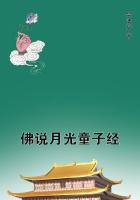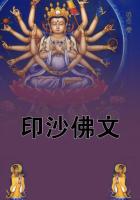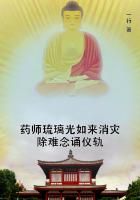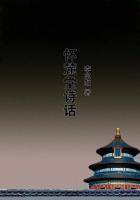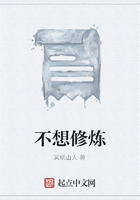Prynne and others hint at still darker abominations than the mere defilement of the conscience: we shall say nothing of them, but that, from collateral evidence, we believe every word they say; and that when pretty little Cupid's mother, in Jonson's Christmas masque, tells how 'She could have had money enough for him, had she been tempted, and have let him out by the week to the king's players,' and how 'Master Burbadge has been about and about with her for him, and old Mr. Hemings too,' she had better have tied a stone round the child's neck, and hove him over London Bridge, than have handed him over to thrifty Burbadge, that he might make out of his degradation more money to buy land withal, and settle comfortably in his native town, on the fruits of others' sin. Honour to old Prynne, bitter and narrow as he was, for his passionate and eloquent appeals to the humanity and Christianity of England, in behalf of those poor children whom not a bishop on the bench interfered to save; but, while they were writing and persecuting in behalf of baptismal regeneration, left those to perish whom they declared so stoutly to be regenerate in baptism. Prynne used that argument too, and declared these stage-plays to be among the very 'pomps and vanities which Christians renounced at baptism.' He may or may not have been wrong in identifying them with the old heathen pantomimes and games of the circus, and in burying his adversaries under a mountain of quotations from the Fathers and the Romish divines (for Prynne's reading seems to have been quite enormous). Those very prelates could express reverence enough for the Fathers when they found aught in them which could be made to justify their own system, though perhaps it had really even less to do therewith than the Roman pantomimes had with the Globe Theatre: but the Church of England had retained in her Catechi** the old Roman word 'pomps,' as one of the things which were to be renounced; and as 'pomps' confessedly meant at first those very spectacles of the heathen circus and theatre, Prynne could not be very illogical in believing that, as it had been retained, it was retained to testify against something, and probably against the thing in England most like the 'pomps' of heathen Rome.
Meanwhile, let Churchmen decide whether of the two was the better Churchman--Prynne, who tried to make the baptismal covenant mean something, or Laud, who allowed such a play as 'The Ordinary' to be written by his especial protege, Cartwright, the Oxford scholar, and acted before him probably by Oxford scholars, certainly by christened boys. We do not pretend to pry into the counsels of the Most High; but if unfaithfulness to a high and holy trust, when combined with lofty professions and pretensions, does (as all history tells us that it does) draw down the vengeance of Almighty God, then we need look no further than this one neglect of the seventeenth century prelates (whether its cause was stupidity, insincerity, or fear of the monarchs to whose tyranny they pandered), to discover full reason why it pleased God to sweep them out awhile with the besom of destruction.
There is another feature in the plays of the seventeenth century, new, as far as we know, alike to English literature and manners; and that is, the apotheosis of Rakes. Let the faults of the Middle Age, or of the Tudors, have been what they may, that class of person was in their time simply an object of disgust. The word which then signified a Rake is, in the 'Morte d'Arthur' (temp. Ed. IV.), the foulest term of disgrace which can be cast upon a knight; whilst even up to the latter years of Elizabeth the contempt of parents and elders seems to have been thought a grievous sin. In Italy, even, fountain of all the abominations of the age, respect for the fifth commandment seems to have lingered after all the other nine had been forgotten; we find Castiglione, in his 'Corteggiano' (about 1520), regretting the modest and respectful training of the generation which had preceded him; and to judge from facts, the Puritan method of education, stern as it was, was neither more nor less than the method which, a generation before, had been common to Romanist and to Protestant, Puritan and Churchman.

